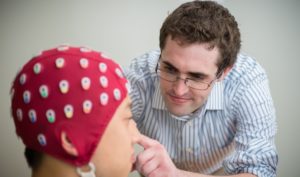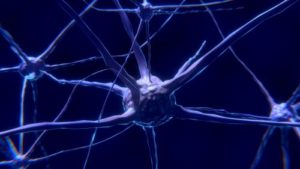
African American Mindfulness Researchers Make Vital Contributions
The growing recognition of transdisciplinarity’s powerful nature offers researchers valuable opportunities for collaboration
Mindfulness-Based Stress Reduction for Teens (MBSR-T)
Mindfulness-Based Stress Reduction for Teens (MBSR-T; Biegel, 2017; Biegel et al., 2009, 2014) is a mindfulness training program for adolescents adapted from the traditional Mindfulness-Based Stress Reduction (MBSR; Kabat-Zinn, 1982) program designed for adults. The MBSR-T program (also known as the Stressed Teens program) was created in 2004 by Gina M. Biegel, MA, LMFT. Similar to the traditional MBSR program for adults, MBSR-T is a secular adaptation of mindfulness practices rooted in Eastern meditation traditions. However, MBSR-T specifically draws on developmental theory by taking into account the rapidly changing cognitive and emotional capacities of teens and is influenced by mindfulness-based cognitive therapy (Segal, Williams, & Teasdale, 2002).
The MBSR-T program — offered both in-person or online by trained professionals — acknowledges the unique challenges adolescents face ranging from intrapersonal (e.g., attention, emotions, impulsivity) to interpersonal (e.g., social skills) to performance-based challenges (e.g., confidence, self-efficacy, procrastination). In order to more skillfully and adaptively confront these challenges, teens are taught fundamental skills of mindfulness, such as the cultivation of awareness of senses, thoughts, and feelings from moment to moment, as well as the development of positive coping skills. Teens learn to intentionally direct their attention toward self-care and aspects of experience that are positive and nourishing, rather than negative and depleting. As a result, teens discover how to become aware of thoughts versus reacting to them, discern between caring versus worrying, and ultimately bring mindful attention and orientation to daily life to manage emotions better and demonstrate more prosocial behaviors.
“The MBSR-T program — offered both in-person or online by trained professionals — acknowledges the unique challenges adolescents face ranging from intrapersonal to interpersonal to performance-based challenges.”
Course Format: The MBSR-T program is available to adolescents, families, or schools and is offered both online and in person. The in-person program is offered in eight 90-minute weekly sessions. During the 8-week course, teens use the mindfulness tools and techniques to intentionally focus attention and observe their own emotions and behaviors from moment to moment. The online MBSR-T program is offered in 4, 90-minute weekly sessions. Each class typically starts with a ‘mindful check-in’ where youth can share highs and lows for the week, review practices from previous weeks, and have the opportunity to ask the instructors questions. This is followed by discussing the topics for the week followed by the assignment of ‘On-Your-Own-Practices’ (OYOPs) for youth to work on outside of the group.
Instructor Requirements: An in-depth 10-week training of the MBSR-T program has been developed for professionals (e.g., counselors, educators, nurses, physicians, psychologists, social workers) interested in helping stressed adolescents find clarity and relief from stress based on their direct experience supporting teens during this inherently challenging time of life. Each week instructor trainees will receive 3 hours of online training that includes but is not limited to training with the creator of Stressed Teens, Gina Biegel MA, LMFT, and experiential group practices geared toward honing skills to teach mindfulness-based practices with teens. Trainees learn how to facilitate present moment awareness of pleasant and unpleasant experiences, utilize positive coping strategies, build mindful relationships, and incorporate mindfulness based solutions and mindful living into daily life. Lessons ranging from positive neuroplasticity to the foundations, history, and research of the MBSR-T program are delivered through the weekly curriculum, among others.
Course Outcomes: The MBSR-T program does not claim to be a cure-all or silver bullet for the numerous psychosocial challenges teens may endure. There are, however, a host of potential benefits that include but are not limited to the following: improved emotion regulation and metacognition (e.g., awareness of one’s thinking), realistic shifts in perceptions and appraisals of stress, decreases in stress, improved overall mental and physical health and well-being, increased sense of control, insight into the sources of strength that come from within, decreases in negative coping skills, and increases in positive coping skills. Ultimately, the MBSR-T program’s goal is to strengthen teens’ stress coping capacities, foster greater resilience, and improve quality of life during adolescence.
Clinical Populations: The first rigorous scientific test of the efficacy of MBSR-T was done with 102 adolescents ages 14 to 18 years with mood and anxiety disorders in an outpatient psychiatric facility (Biegel et al., 2009). Adolescents were randomly assigned to either the intervention group (they received mindfulness training) or the control group (they did not receive any training). All participants continued their usual psychological care in addition to their group assignment. Results showed that from baseline to the 3-month post-treatment follow-up (5 months total), participants in the intervention group improved significantly on a range of psychological, physical, and behavioral outcomes compared to the control group. Specifically, the intervention group reported fewer anxiety and stress symptoms and significant reductions in self-reported anxiety, depression, somatization, perceived stress, obsessive symptoms, and interpersonal problems. The group that received the mindfulness training also showed significant increases in Global Assessment of Functioning scores, greater overall symptomatic improvement in DSM-IV diagnoses, improved self-esteem, and sleep quality 3-months after the training.
MBSR-T Workbook: https://books.google.com/books/about/The_Stress_Reduction_Workbook_for_Teens.html?id=s35C2qZ7EcwC&source=kp_book_description
References
Biegel, G. M. (2017). The stress reduction workbook for teens: Mindfulness skills to help you deal with stress. New Harbinger Publications.
Biegel, G. M., Brown, K. W., Shapiro, S. L., & Schubert, C. M. (2009). Mindfulness-based stress reduction for the treatment of adolescent psychiatric outpatients: A randomized clinical trial. Journal of consulting and clinical psychology, 77(5), 855.
Biegel, G. M., Chang, K., Garrett, A., & Edwards, M. (2014). Mindfulness-based stress reduction for teens. In Mindfulness-based treatment approaches (pp. 189-212). Academic Press.
Kabat-Zinn, J. (1982). An outpatient program in behavioral medicine for chronic pain patients based on the practice of mindfulness meditation: Theoretical considerations and preliminary results. General Hospital Psychiatry, 7(1), 71-72.

Michael J. Tumminia an Applied Developmental Psychology PhD candidate at the University of Pittsburgh. His research utilizes both quantitative and qualitative methods to examine how mindfulness meditation training can support positive youth development from adolescence to young adulthood.

The growing recognition of transdisciplinarity’s powerful nature offers researchers valuable opportunities for collaboration

Does the scientific content that we read always mean what it claims?

The growing recognition of transdisciplinarity’s powerful nature offers researchers valuable opportunities for collaboration

Mindfulness practices like critical analysis can reveal the mental formations behind these tools.

By providing an immersive, engrossing, and controlled visual and auditory experience in which participants can practice mindfulness techniques, Virtual Reality (VR) systems can create immersive, ecologically valid, first-person experiences that can even tap into physiological reactions that align with real-world experiences.

The researchers were interested in understanding if forgiveness acts as a mechanism by which mindfulness relates to relationship satisfaction. They speculated that being mindful would allow individuals to be aware of their own and their partners’ emotions in a non-judgmental and non-reactive way. The increased awareness would make people more forgiving of partner transgressions, thereby enhancing relationship satisfaction.

Emerging studies are highlighting the effectiveness of mindfulness, gratitude and hopefulness as positive psychological tools in helping people cope with anxiety and stress. These practices have also been considered beneficial in enhancing psychological health and well-being.

After nearly three decades, a ban prohibiting public schools to offer yoga as an elective for grades K-12 has been overturned in Alabama.

Rather than proposing a single definition, mindfulness might be better understood in relation to the phenomenology of the various contemplative traditions and practices that intend to develop mindfulness.

Ruben Laukkonen is a cognitive neuroscientist at the VU University of Amsterdam. His research focuses on sudden insight experiences and the effects of intensive meditation on the mind and brain. Using a combination of neuroimaging, machine learning, and neuro-phenomenology, Ruben is investigating some of the most rare states of consciousness accessible to human beings. He has published articles in leading journals, given talks at prestigious conferences, and has written on topics that range from artificial intelligence to psychedelics. Ruben has an eclectic contemplative background, including different meditation traditions such as Zen, Advaita, and Theravada.

Despite significant advances in the field of psychology due to increased research … the usual care of people with chronic medical conditions still often neglects the psychological issues associated with the physical dimension of the disease.

Despite growing knowledge that mindfulness meditation can enhance emotional wellbeing, very little is known about how it all works. How exactly does the act of meditation help us deal with the emotional rollercoaster of everyday life? Is mindfulness training actually “transferrable” to real world situations? What’s going on in the brain? Can we even measure it?

“We focus on concentration,” Jones says. “So rather than sharpening your focus, which is what happens when you get anxious, the goal is to relax your focus.” The ability to utilize your breath to calm your nervous system is the first step to teaching mindfulness.

How does self-compassion protect depressed adolescents? Quieting the self may be the key.

A study led by Alexandra Martelli investigated whether more mindful individuals (based on self-report measure scores) would respond to social rejection with less distress and if certain neurological mechanisms in the brain’s prefrontal cortex can potentially explain the role of mindfulness in reduced social distress.

A research team from Valencia, Spain recently investigated the effects of a brief mindfulness-based intervention on both mood and biological markers on a sample of health professional students.

A new study by Kim and colleagues explored how compassion-based training can affect two self-regulatory styles and its relationship to neural, physiological, and behavioral responses.

Torre and colleagues recruited 70 HCWs from two hospitals in Rome, Italy for a 4-week course in yoga and mindfulness.

A team of researchers based in the perceived epicenter of the virus, Wuhan, China, recently tested whether a brief mindfulness intervention delivered through an app could be effective for reducing anxiety and protecting nightly sleep during the unfolding pandemic.

Mindfulness practices can enhance a therapist’s ability to intentionally and flexibly regulate attention as well as emotional reactivity which has been demonstrated to influence burnout.

A new study investigated whether a brief mindfulness training designed to reduce physician burnout could be delivered through a smartphone app.

The current study reviewed the wider scientific literature for the role of yoga and mindfulness interventions in the treatment of severe mental illness.

The amount of research involving mindfulness interventions has grown exponentially; however, only in the last decade has mindfulness research involving adolescents rapidly increased.

Mindfulness and self-compassion are theorized to disrupt the maladaptive repetition of negative thoughts and emotions for patients with chronic or mental illnesses, who are particularly susceptible to psychosocial distress.

According to the Association for Mindfulness in Education, mindfulness can increase students’ emotional regulation, social skills, self-esteem, and organizational capacities.

There is promising evidence that 70% of smokers would like to quit but less than 5% of unassisted attempts at quitting are actually successful.

In a recent pilot study by Suzette Glasner, Ph.D. and her team at the Integrated Substance Abuse Programs at the David Geffen School of Medicine at UCLA, they evaluated the effects of Mindfulness-Based Relapse Prevention (MBRP) on reducing relapse susceptibility among stimulant-dependent adults receiving a contingency management (CM) intervention.

A major implication of the study suggests the distal effects of intensive retreat practice on respiration rates, a benefit not necessarily conferred by a brief, but full-day meditation session.

Researchers are exploring mindfulness-based interventions as a long-term treatment options to address the multitude of symptoms after cancer has been treated.

While the scientific study of mindfulness has exponentially increased over the past few decades, only recently has the scientific community focused on the effects of meditation training on biological aging.
Tell us about your idea. Nearly any subject related to the science of mindfulness is fair game.